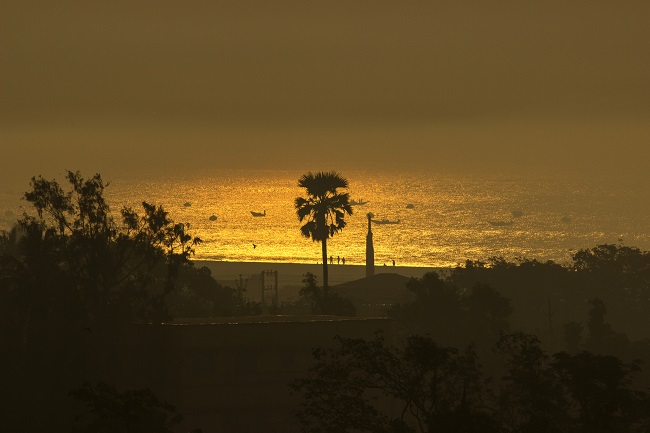Nov 04, 2025
Nov 04, 2025
Dawn at Puri is a very beautiful poem written by Jayata Mahapatra and it is rare to find a poem like this, so brief, but so expressive of in little said things. Little words speak up the whole thing. The poem has the quality of being read time and again. Each stanza tells about the shift in thought and idea.

Dawn at Puri is about a dawn flashing upon the temple and its vicinity, the Jagannath Temple and the sea beach, the worshippers and the people around.
Endless crows, so many crows making a noise, with it the poem starts and continues to be with the skull on the sands telling of the country and the tale of hunger, a world shorn off and bereft of, so infertile and sterile, bare and barren.
Again we find the widows lined for to worship, in rows and queues, waiting for their turn to come to as the temples remain crowded with. The widows, what have they to ask for and to get from? How their expectation? Everybody knows it. The wide-clad widows evoke the imagery of their type. How is the life of a widow? How are they treated?
Again the frail light catches the leprous shells lying scrambled and shrunken and here lies the pity of poetry. Here we shudder at the imagery and it is horrible to see the sight.
Again the light shifts to the solitary blaze of fire trailing from the pyre burning on the sea beach telling of bodily remains and the last rites of man. What does it remain it here? What is that lasts it here? The pyre alit with fire and blazing can strike it anyone as it also has Daruwalla in Fire-hymn.
His mother too wishes it to be burnt here. It may be the expression of every Oriya to be burnt at Puri as it is swargadwara. But as Mahapatra is an Oriya Christian, we are not sure in this regard. But the common Oriyas like it to be.
The poem is replete with images and pictures, meanings and thoughts. Light which is so frail keeps it shifting just like faith which cannot be proved. The poem is picturesque of the Great Puri Temple which houses in Jagannath, Balbhadra and Subhadra. Crows so many in number tell of hunger, scarcity, poverty, food shortage and thirst. Sly, hungry and thirsty crows keep cawing.
Endless crow noises
A skull in the holy sands
tilts its empty country towards hunger.
White-clad widowed Women
past the centers of their lives
are waiting to enter the Great Temple
Their austere eyes
stare like those caught in a net
hanging by the dawn's shining strands of faith.
The fail early light catches
ruined, leprous shells leaning against one another,
a mass of crouched faces without names,
and suddenly breaks out of my hide
into the smoky blaze of a sullen solitary pyre
that fills my aging mother:
her last wish to be cremated here
twisting uncertainly like light
on the shifting sands
Image (c) istock.com
05-Nov-2022
More by : Bijay Kant Dubey